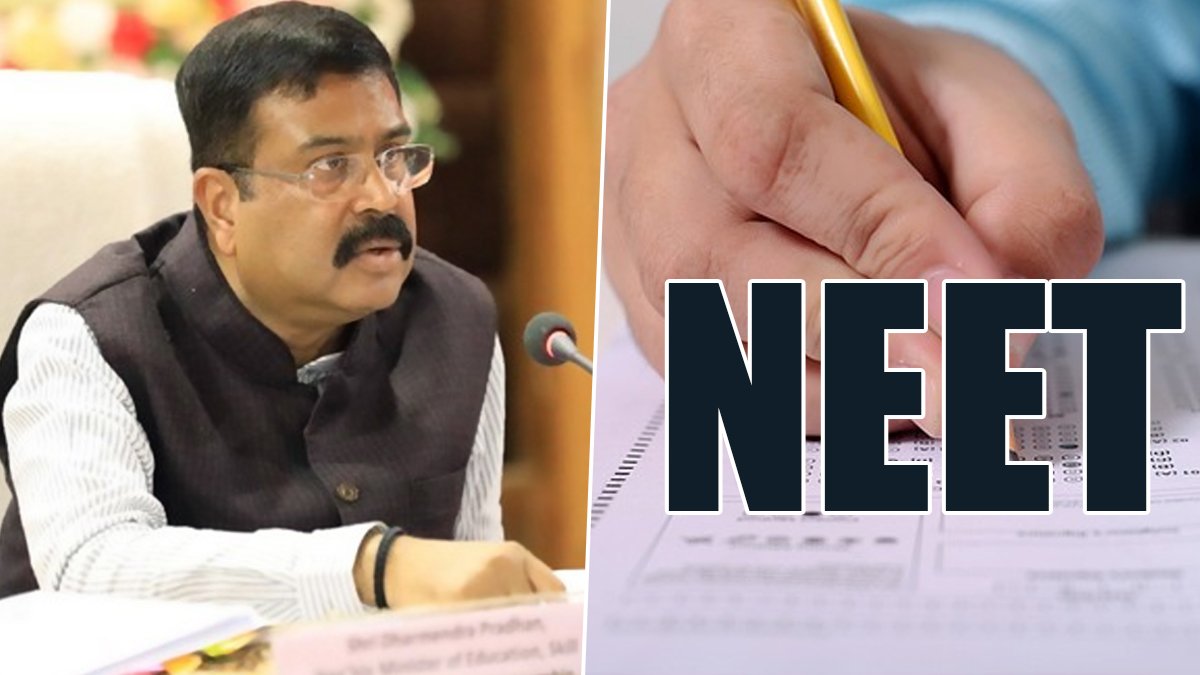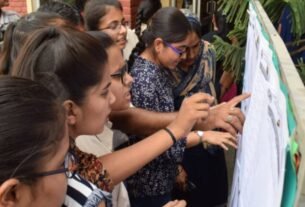Dharmendra Pradhan : The National Eligibility cum Entrance Test (NEET) is a pivotal examination in the Indian education system, serving as the gateway for admission to undergraduate medical and dental courses across the country. The test is administered by the National Testing Agency (NTA), an autonomous body established by the Ministry of Education, Government of India, to conduct entrance examinations with the objective of assessing the competency of candidates for admissions to premier higher education institutions.
Given the high stakes associated with NEET, the integrity and transparency of the examination process are of paramount importance. However, recent concerns and allegations of irregularities have cast a shadow over the credibility of the NEET examination. These irregularities range from administrative lapses to more serious accusations of malpractice, prompting government scrutiny and public outcry.
Dharmendra Pradhan, India’s Minister of Education, has recently addressed these concerns, underscoring the government’s commitment to maintaining the sanctity of the NEET examination. In his statements, Pradhan emphasized that any officials found involved in irregularities would face stringent action, reflecting the government’s zero-tolerance policy towards corruption and malpractice in the education sector.
The role of the NTA in ensuring a fair and transparent examination process is thus under intense scrutiny. The agency is responsible for the meticulous planning and execution of the NEET exam, from setting question papers to managing logistics and evaluating answer sheets. Any deviation from these standards not only undermines public trust but also jeopardizes the future of thousands of aspiring medical professionals. The government’s proactive stance, as articulated by Dharmendra Pradhan, aims to reinforce the integrity of the NEET examination and restore confidence among stakeholders.
Dharmendra Pradhan’s Statement and Implications
Union Education Minister Dharmendra Pradhan has issued a stern warning regarding the potential involvement of National Testing Agency (NTA) officials in irregularities associated with the National Eligibility cum Entrance Test (NEET). During a recent address, Pradhan emphasized that any NTA personnel found guilty of such misconduct would face stringent actions. This declaration comes in response to mounting allegations of irregularities that have raised serious concerns over the integrity of the NEET examination process.
The nature of these allegations encompasses a range of possible irregularities, including but not limited to, question paper leaks, manipulation of results, and unauthorized assistance to certain candidates. Such activities not only undermine the credibility of the examination but also disadvantage honest and hardworking students. Pradhan’s statement underscores a zero-tolerance policy towards any form of malpractice, reflecting the government’s commitment to upholding the sanctity of standardized testing.
Investigations into these allegations are being conducted through multiple channels, including internal audits, third-party reviews, and the involvement of law enforcement agencies. The mechanisms in place are designed to ensure a thorough and impartial examination of all claims. Officials found culpable may face severe repercussions, ranging from suspension and dismissal to legal prosecution, depending on the severity of their involvement.
The broader implications of Pradhan’s statement are significant. For the NTA, it signals an urgent need to reinforce its oversight and regulatory mechanisms to prevent future irregularities. For students, this development aims to restore confidence in the fairness and transparency of the examination process. The education sector in India, which relies heavily on standardized testing for college admissions, stands to benefit from enhanced trust and reliability in its evaluative procedures.
Moreover, Pradhan’s directive is likely to influence public perception, potentially rebuilding trust in standardized testing frameworks. Measures being proposed to safeguard the examination process include stricter surveillance during exams, enhanced security protocols for handling question papers, and more robust digital infrastructures to prevent data breaches. These steps are intended to create a more secure and equitable environment for all examination participants.





